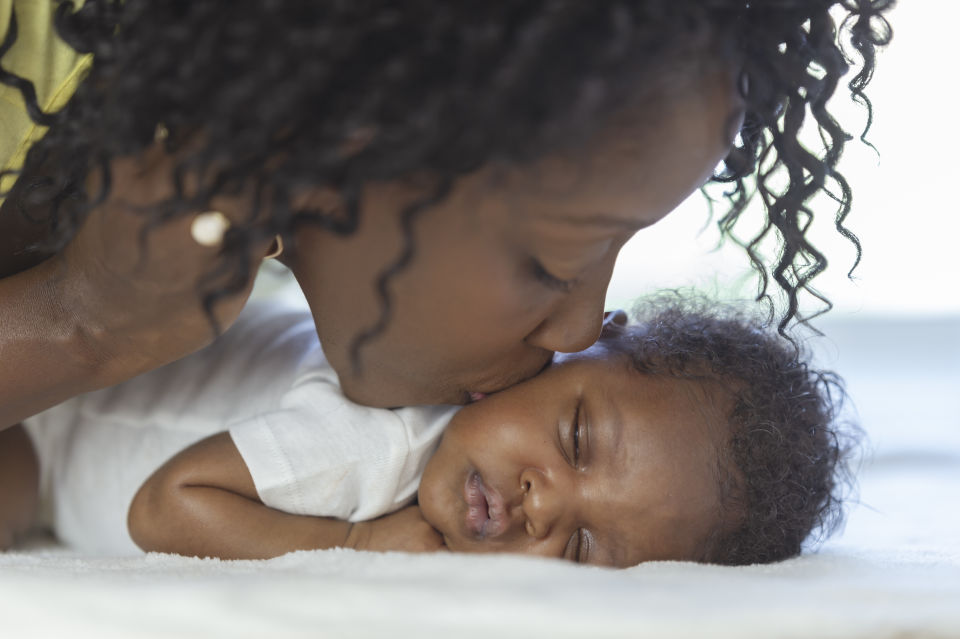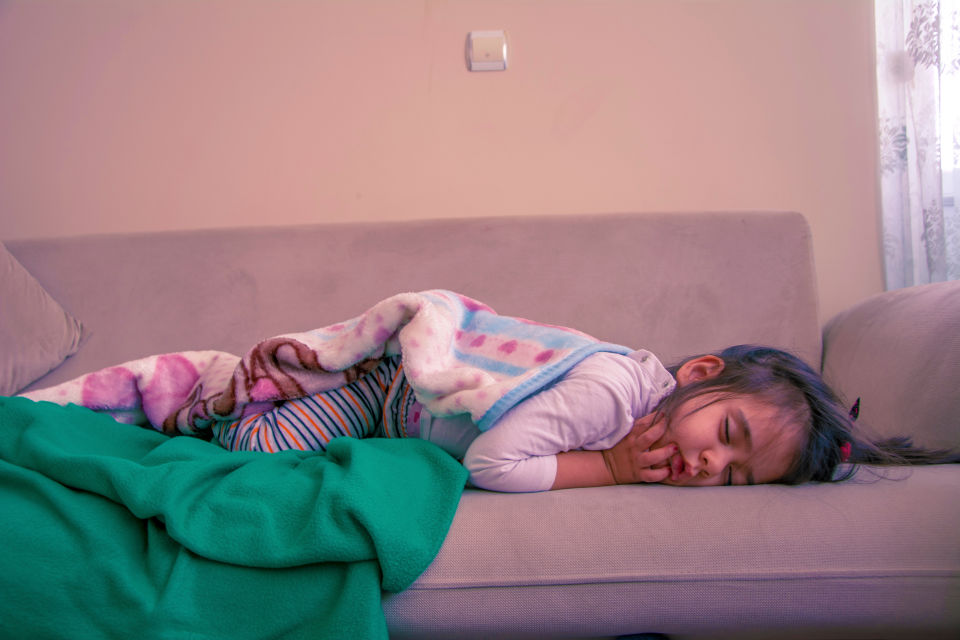Sleep is critical to every child’s physical development. Here you’ll read about the benefits of sleep, how to keep your baby safe while sleeping, and the amount of sleep your child needs during the first five years of life.
Children’s brains and bodies need plenty of sleep to process and rejuvenate from all of their experiences and learnings each day.
Although parents tend to be very focused on a young baby’s sleep schedule, sleep should in fact remain a priority for children from infancy through five years of age and beyond. Sleep offers many health benefits, from reducing the likelihood of getting sick, to helping with attention, concentration and learning. And just like adults, you might have noticed your child is happier when she’s gotten a good night’s rest!

Sleep Safety
For babies from 0 to 12 months old:
Always have them sleep on their backs.
Always have them sleep on a firm, flat surface away from any potential dangers (edges, couches, animals, etc.).
Babies’ beds only need a securely fitted sheet – nothing else. Remove any blankets, pillows, bumper pads, toys, or other objects from your baby’s crib. Dress your baby warmly if it’s cold. Do not put a blanket on your baby for warmth.
Being active and limiting screen time during the day are simple ways to help increase the amount of time your child sleeps. Make sleep a family expectation for everyone so your child gets the sleep she needs.

For more information about baby sleep safety, click here.
Sleep Recommendations
The American Academy of Pediatrics recommends the following amount of sleep hours for children in a day:
Ages 4-12 months: 12-16 hours (including naps)
Ages 1-2 years: 11-14 hours (including naps)
Ages 3-5 years: 10-13 hours (including naps)






